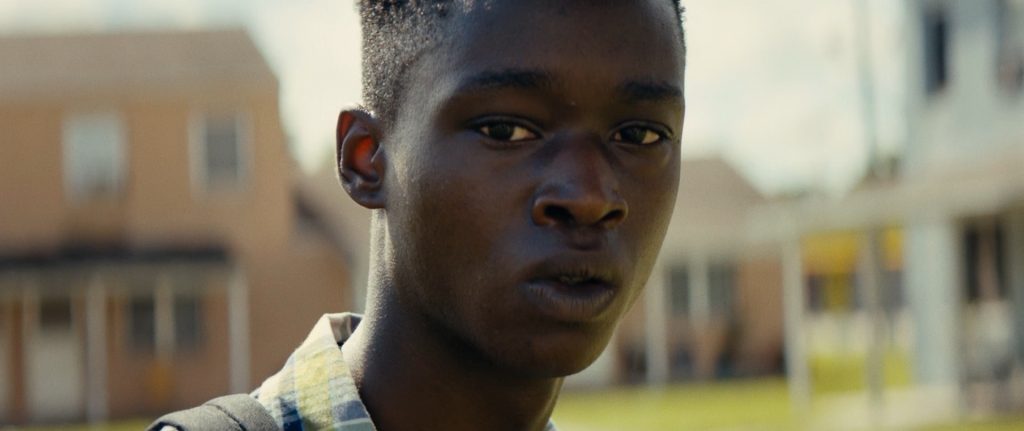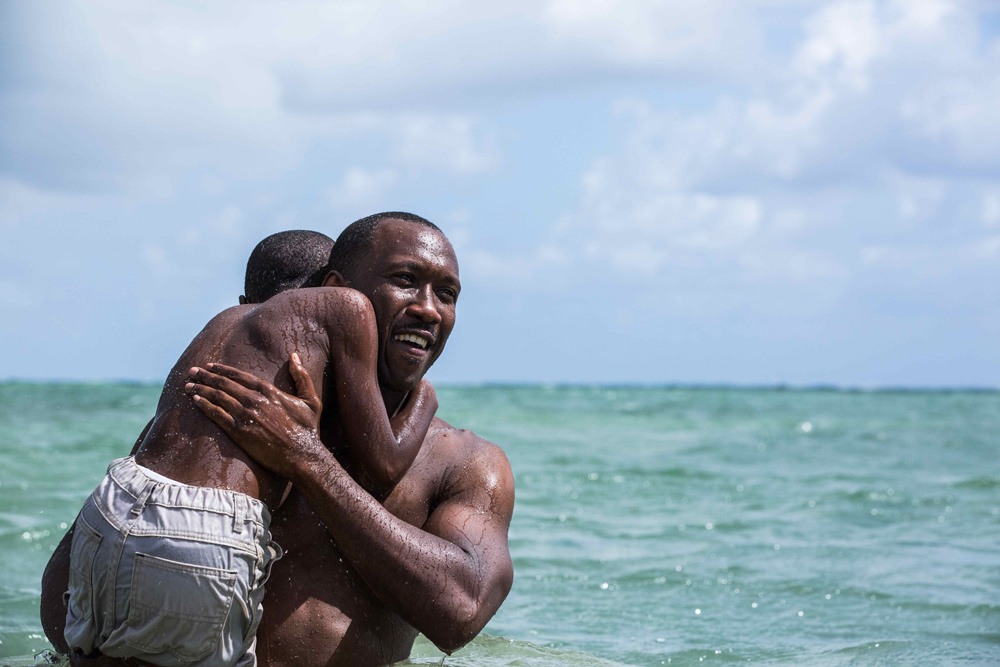This past Sunday, the 89th Academy Awards were finally coming to an end as Warren Beatty and Faye Dunaway took the stage to present Best Picture. It had been till that point one of the more predictable ceremonies in recent memories, with no major upsets to speak of. So when Dunaway called it for the heavily favored La La Land, no one was surprised.
And then something weird happened. In what has already become one of the biggest memes of the year, Warren Beatty, along with host Jimmy Kimmel and several other Oscar officials wandered back onstage in a confused panic, and informed the cast and crew of La La Land that they had in fact not won the night’s most coveted award. “This is not a joke, Moonlight has won Best Picture,” said producer Jordan Horowitz, holding up the envelope so everyone could see. And with that, the entire narrative of the night changed.
Although largely recognized as charming and technically impressive, La La Land has also received its fair share of criticism over the contrast of its black characters and its use of jazz with the whiteness of its leads. Conversely, Moonlight, La La Land’s biggest competitor and the ultimate victor in this year’s Oscar race, is an almost universally praised story about the intersection of queer and black life in a world which often restricts multidimensional identity. The deck seemed against it; Moonlight is not as conventional, commercial, fun, and most importantly, as white as La La Land (not by a long shot in the case of that last one.)
In the last year plus, we’ve seen the establishment and conservative values triumph over more deserving and historically marginalized candidates again and again. Whether in politics (the presidential election,) sports (the Super Bowl,) or entertainment (the Grammys,) this has not been a a good few months to be either an underdog or a champion of the little guy.
And then the Oscars happened.
Except, there’s the thing: La La Land doesn’t actually belong in the same category as Donald Trump, or Tom Brady, or Adele (okay, maybe Adele, she’s still awesome.) And yet if it had won Best Picture, that’s exactly where it would be in so many people’s minds right now. The funny thing about Sunday night’s Oscars is that Moonlight’s historic and important victory wasn’t just a good thing for Moonlight, it was a good thing for La La Land too.
Given all the recent criticism, you might’ve thought that La La Land emerged as one of the more divisive films of the year when it came out this past December. But out of 53 reviews, the film boasts a formidable 93 on Metacritic, with only two critics putting it in the “average” range. This isn’t quite as impressive as Moonlight’s near unattainable 99 average, with all 51 reviewers listed on Metacritic giving it a positive score. But the point is that at least initially, critics felt these two films were in striking distance of one other.
And then, as the Oscar race grew closer and the other events listed above came to fruition, the idea began to cement that La La Land actually wasn’t that good; that it was just more Oscar hokum beloved by Hollywood’s white, older elite, destined to overtake Moonlight’s younger, nuanced, more relevant take on the issues of the day. It didn’t matter that La La Land had actually been one of the more acclaimed films of the year. In the eyes of most cultural critics, it was the establishment candidate, and therefore, it became something distasteful.
This is not the first time such a narrative has been set up and it won’t be the last. In 2015, Birdman beat Boyhood, and the pundits rolled their eyes as yet another tale of a Hollywood egomaniac was rewarded over a small, subtle meditation on life and growing up. In 2011, The King’s Speech bested The Social Network, solidifying for many that the Academy prefers cheesy sentiment about days of old rather than intelligent commentary on the world we live in now. Most egregiously in the minds of this era’s Oscar prognosticators, Crash shocked everyone in 2007 by beating Brokeback Mountain, apparently indicating that the Oscars would rather see a simplistic take on racism than a complicated one on homosexuality.
The King’s Speech isn’t a bad film. Birdman has its problems, but it has its strengths too. The merits of Crash, if any, remain up for debate. But what ties these films together more than anything is that they won. They all beat films which, in the minds of most critics, were far more deserving.
Jump forward to 2017. The country is divided, we’re coming off a year where minorities and the disenfranchised have basically been under siege, and it appears the Oscar is likely to go to the feel-good movie about the pretty artists singing and dancing. Maybe not the best look, especially coming off the heels of #OscarsSoWhite. Frankly, under these conditions, it wouldn’t matter how good La La Land is. If it won, it was bound to go down in history as the movie that beat the blacker, querer, more deserving candidate.
Now that doesn’t have to happen. Now, we are free to judge both Moonlight and La La Land on their own merits, rather than as a part of a race which pitted two very good, very different films against each other, to satisfy an often often toxic institution.
Comparing La La Land and Moonlight is like comparing Singin’ in the Rain and Do the Right Thing. To be fair, La La Land is a lot scrappier than the impossibly polished Singin’ in the Rain, and Moonlight is not the overt work of political protest that Do the Right Thing is. However, what you can take away from this comparison is the kinds of stories we value in our culture, and why. If Singin’ in the Rain represents American cinema at its highest potential for escapism, Do the Right Thing may be the most notable example from the last few decades of the necessity for representation and different perspectives in filmmaking. One of these movies is lighthearted, joyous, but ultimately less inclusive. The other is incisive, visceral, and demands that we listen to the voices of the voiceless.

But how do you pick between the two? Can you honestly say that Singin’ in the Rain is better than Do the Right Thing, or vice versa? Maybe you can, maybe you will. Yet it is hard to imagine the canon of great American movies without either of these perfect pieces of art.
Let’s not forget though that Singin’ in the Rain came out in 1952, while Do the Right Thing was released in 1989. That Singin’ in the Rain continues to be appreciated is a testament to how well-crafted it really is. That Do the Right Thing feels more vital but less appreciated is a testament to how slow the wheels of progress turn.
Thus, we return to La La Land and Moonlight. Were these films released decades apart, we wouldn’t be comparing them at all. But as they came out within a month of each other, we are forced to look at them in a different context. You could easily argue either one as a masterpiece, regardless of what ended up winning Best Picture (let’s not forget, even Citizen Kane failed to achieve that honor.) But Best Picture does mean something. It validates a film outside of arthouse circles, and puts it on the lips of middle America. In that sense, Moonlight’s win may be a turning point for the Academy. This is the first LGBTQ story to win the award, and one of the only narratives about non-white people to take home the honor too.
The Academy still has work to do. Casey Affleck’s win for Best Actor amidst sexual assault allegations has sent a message to many that the Oscars don’t care about survivors. And the makeup of Academy members, along with the history and infrastructure of the motion picture industry itself, for that matter, still lean heavily towards whiteness.
But don’t let that stop us from giving Moonlight its due. This is a big deal. While some may indicate that the Academy rewarded Moonlight in part to make up for snubbing black talent in recent years, the truth is that it doesn’t matter why it won. Whether it was out of white guilt, or a sign of protest in Trump’s America, or because – despite what Jimmy Kimmel said — voters actually did like Moonlight best, it won all the same. And it deserved to win. That’s what’s important.
As consolation prize, we can also enjoy La La Land too, knowing that it didn’t rob Moonlight of a justified victory. Escapist, bittersweet, and magical, for many of us, La La Land is exactly the movie we want right now. But Moonlight is the movie that all of us need.

